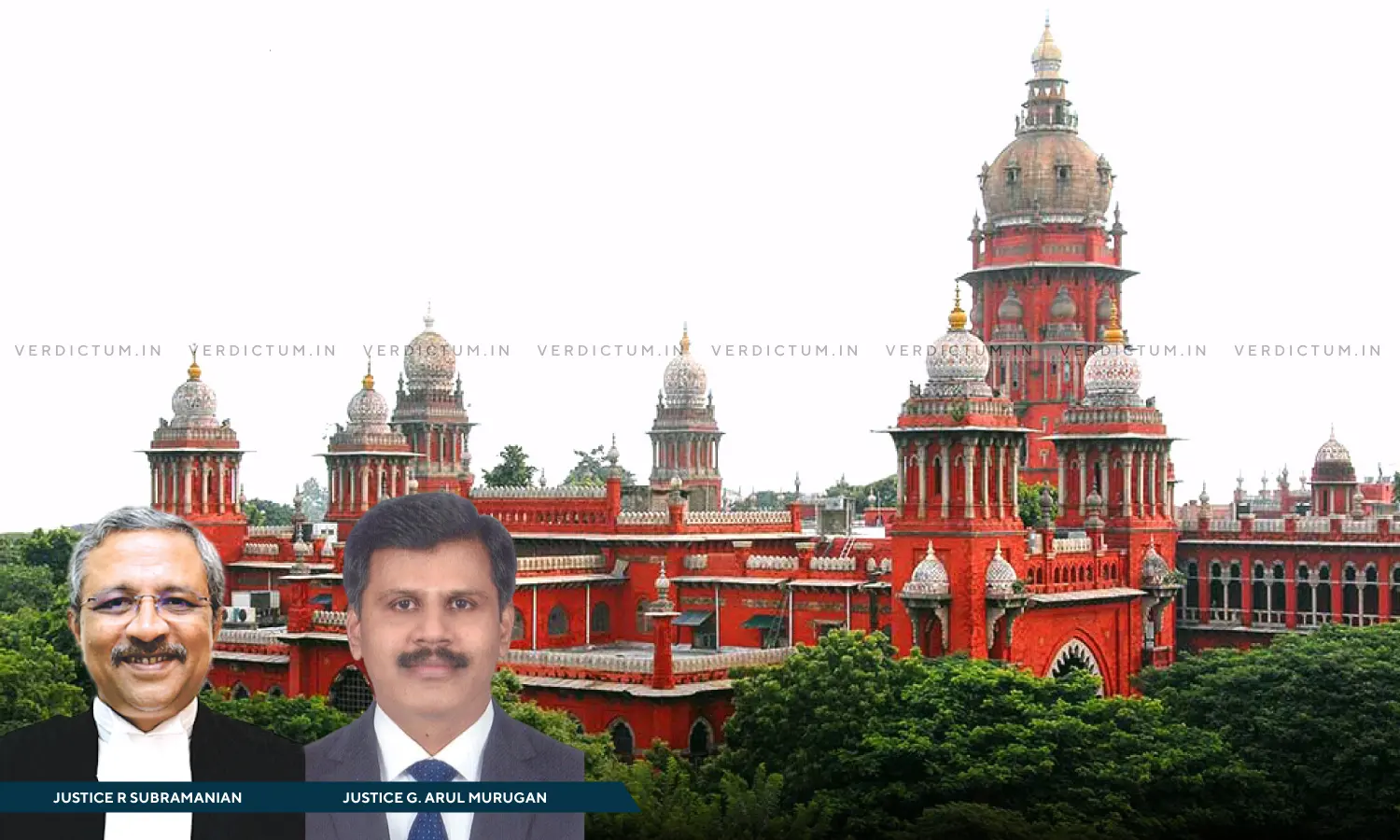Re-Agitation Of Matter Already Resolved By Supreme Court: Madras High Court Imposes ₹ 5 Lakh Cost On State
Appointment of a sanitary worker was contested by the State after single judge’s approval of the appointment.

The Madras High Court imposed cost of ₹ 5 Lakh on the State of Tamil Nadu for pursuing a writ appeal in a matter that had already reached a final resolution through the Supreme Court's decision.
The case centered on the appointment of a sanitary worker at St. Christopher's College, a minority educational institution, where the State had contested the single judge’s approval of the appointment.
A Division Bench of Justice R. Subramanian and Justice G. Arul Murugan ordered, “Since we find that this appeal is re-agitation of a matter, which is already settled by a Division Bench of this Court and approved by the Hon'ble Supreme Court, we impose cost of Rs.5,00,000/- on the Government. A cost of Rs.2,50,000/- is to be paid through the College to the person appointed as a Sanitary worker and the remaining sum of Rs.2,50,000/- shall be paid to the Madras High Court Legal Services Authority. The Government is granted four weeks time to comply with the order of the learned single Judge. Costs shall be paid within a period of 15 days from today.”
The State was given four weeks to comply with the single judge’s order, while the costs were to be paid within 15 days from the date of the judgment.
Special Government Pleader D. Ravichander appeared for the Appellant and Advocate P. Godson Swaminathan appeared for the Respondent.
In the present case, the college had sought approval for the appointment of a sanitary worker, but the Directorate of Education had failed to act. The single judge had ruled in favor of the college, directing the State to grant the necessary approval for the appointment. In response, the State once again sought to challenge the decision, relying on a single judge’s earlier order that granted it the power to issue a government order regulating appointments for sanctioned posts in government-aided colleges. However, the High Court found this argument to be unsustainable, as it conflicted with a decision that had already been upheld by the Supreme Court.
The Court clarified that while the Government had the authority to regulate appointments in government-aided colleges, such regulation could not override the established rules through an administrative order. The Court emphasized that the State’s actions were in direct contradiction with the law as affirmed by the Supreme Court.
Consequently, the appeal was dismissed.
Cause Title: The State of Tamil Nadu & Ors. v. The Principal and Secretary


